Discover How Optimal SEO Techniques Enhance Reputation Management
Your online reputation impacts every potential click or purchase. Protect your brand image with our online reputation management services

What necessitates a reputation management strategy for brands?
Preserving a favorable brand image is integral to any marketing plan. Yet, brands cannot completely regulate their portrayal or perception online. Unforeseen negative attention can swiftly arise, carrying significant repercussions, especially if it surfaces prominently in online searches. Reputation management firms actively monitor brand references across web platforms, aiming to mitigate potential harm from adverse content or unfavorable reviews. Leveraging SEO, public relations, link building, and other tactics, these professionals shape online narratives, exerting influence over the content showcased in leading search engine results.

What makes LinkGraph a favorite among clients?
SEO for Reputation Management
We employ SEO techniques to safeguard your brand's reputation in search results while amplifying the visibility of your positive digital assets across the internet.
Online Public Relations
Our digital PR experts will leverage original, high-quality content to enhance your brand's value through prominent press features, publications, and valuable backlinks.
Online Review Management
Delegate your review management tasks to us. We'll address any negative comments and enhance your positive reviews across all pertinent review platforms.
Social Media Surveillance
We oversee your brand's reputation across all social media platforms, ensuring a positive and favorable image for your online presence.
Are you prepared to discover how SEO Reputation Management can expand your business?
Foundational Principles of Reputation Management
We vigilantly monitor search engine results pages to guarantee that only favorable content ranks for any queries containing your brand name. Given that search engines like Google and Bing often shape potential customers' initial perceptions of your business, it's crucial that top-ranking results for such queries reflect your expertise, credibility, and legitimacy. Additionally, we keep a close eye on third-party sites that may reference your brand name, as they can easily attain first-page rankings. This includes platforms like online review sites, Wikipedia pages, Google Image results, articles in reputable newspapers, and more.

Advantages of Managing Your Reputation
Brand Recognition
Brand recognition is a fundamental concept in advertising and marketing.t signifies success when individuals can identify a brand through visual or auditory cues like logos, slogans, packaging, colors, or jingles, rather than being directly exposed to the company's name. I

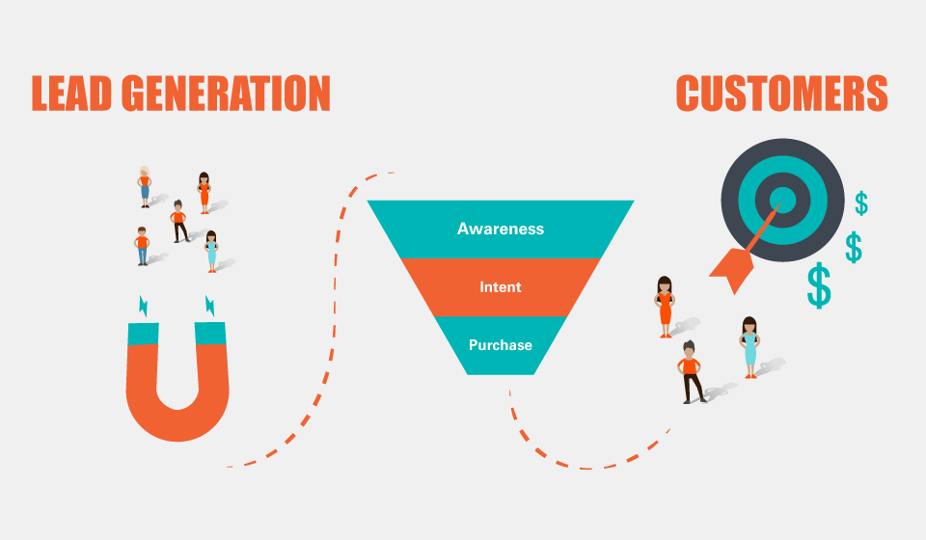
Lead Generation
Lead generation involves attracting the interest of potential customers to boost future sales, constituting a vital component of numerous companies' sales strategies. Proficiency in lead generation and its effective application can be pivotal in guiding leads through the sales funnel, ultimately converting them into paying customers.
SEO Effectiveness
SEO represents the digital alchemy of the 21st century. It involves transforming content leads into valuable assets like traffic, visibility, and revenue. Unlike medieval alchemy, the effectiveness of SEO isn't based on speculation; it's a proven fact supported by concrete data.


Safeguard your Brand and Domain through Reputation Management
As your brand flourishes, its online reputation follows suit. Without a strategic approach to managing this reputation across numerous digital platforms, it's easy to lose control. Consider scheduling a consultation with one of our reputation management experts at LinkGraph. We specialize in managing large-scale operations and can adeptly shape your online narratives during periods of growth, expansion, success, or crisis. Our managed SEO reputation management campaigns are designed to fortify, safeguard, and restore the integrity of your brand and domain. Take the first step today.
The Reputation Management Procedure
Construct
Enhance your online presence and reputation by achieving superior results on search engine results pages. Utilize strategies such as link building, on-page optimization, social media engagement, local SEO, enterprise SEO, and beyond. By targeting relevant keywords related to your products, services, or brand, you can broaden your visibility and credibility across various search queries.
Administrate
If your business has reached a mature stage but is expanding to the extent that managing your online reputation internally becomes challenging, our digital marketing agency is here to assist. We specialize in monitoring, safeguarding, and preemptively managing your company's reputation against any potential attacks or mishaps. Leveraging SEO techniques, we ensure your reputation remains robust and favorable among customers across diverse online platforms and digital spaces.
Restore
In the event of a PR crisis, reputation managers play a crucial role in pinpointing digital platforms hosting negative content and swiftly initiating repairs. This involves employing SEO, crafting effective content strategies, and deploying various reputation management techniques.
Ebook on Managing Your Reputation
For an in-depth exploration of the services provided by reputation managers, the intricacies of SEO reputation management, and a comprehensive list of digital platforms where your site's reputation can be enhanced or marred, delve into our ebook on reputation management. Discover how leveraging SEO can empower you to craft online narratives in your favor.
Exploring Reputation Management
Regardless of the size of your organization, the online reputation of your brand profoundly influences potential customers' decisions to choose your products and services over those of your competitors. The value of a stellar reputation is so closely linked to revenue growth that corporations allocate millions of dollars to their public relations departments, dedicated to generating positive content and minimizing negative press.

In today's digital landscape, reputation is no longer shaped solely by word-of-mouth or newspaper headlines; it's molded and sculpted across the vast expanse of the online world. A brand's reputation can now face scrutiny on numerous platforms, spanning from high-authority websites and social networks to business listings, review sites, blog posts, and even Wikipedia entries. Maintaining a positive presence across these digital arenas is a monumental task. Reputation managers undertake the arduous work of crafting a brand's narrative across these platforms, ensuring that negative content doesn't gain a lasting foothold in search engine results pages. When consumers seek out new products or services, their journey often begins with a search engine like Google. The information they encounter on the first page of search results heavily influences their purchasing decisions. While a public relations team can manage crises as they arise, it takes a deep understanding of search engine algorithms to prevent unfavorable news articles or negative reviews from dominating Google results for years to come when users search for your business. Unlike other digital marketing strategies—such as content development, link building, or paid advertising—reputation management focuses on digital assets beyond a brand's direct control. While no company can dictate what others say or publish online, leveraging SEO techniques can help shape online narratives to a brand's advantage. As the internet becomes a battleground for reputation, the demand for reputation management services continues to rise. Whether it's individuals, companies, or brands, facing a deluge of negative attention online underscores the importance of implementing a strategic and deliberate reputation management strategy, particularly for well-known and influential entities.
Google and the Concept of "Right to Erasure"
An issue stemming from negative press is its persistent presence in search engine results. Despite individuals, businesses, or organizations addressing and resolving the issue, negative content frequently resurfaces in search engine rankings. This can be particularly unjust if the affected parties have already faced consequences in the court of public opinion or law. The inability to escape from such narratives perpetuates their impact on reputations, regardless of efforts to move forward.

This issue is part of a broader set of challenges that Google has been grappling with, often referred to as "The Right to be Forgotten." Advocates have been pushing for a legal framework allowing individuals to request the removal of private information from Google or search engines, especially under certain circumstances. For instance, when someone wants to move on from a past negative event, such as a personal crisis or controversy, they find themselves unable to do so because of the persistent online documentation of that event. This perpetuates their association with the negative incident, hindering their ability to move forward. While versions of "The Right to be Forgotten" have been upheld in European and Argentinian courts, the United States has yet to enact such legislation, despite strong public support. However, discussions about these laws continue, as their implementation raises complex questions regarding free speech, censorship, and personal privacy. Google's 2009 Caffeine update adjusted its algorithm to consider the age of news and articles in search results, making negative articles less prominent over time. However, this does not address the issue for individuals or brands lacking recent positive publicity to outweigh the negative results. According to Forbes, Google received nearly 850,000 requests to remove information or links between 2014 and 2019. Without broader societal consensus or policy action, this problem is likely to persist. In the meantime, various strategies involving SEO and digital PR can be employed to mitigate the impact of negative content and maintain a positive online identity.
The Importance of Search Results in Shaping Online Reputation
Ever uttered the words, "Have you Googled them?" It's a common reflex when we want to learn more about an individual or company. We instinctively turn to Google to see what appears at the top of the search results. When negative content surfaces, it can instantly erode credibility. Would you consider forming a relationship or strategic partnership with someone who has a slew of negative articles dominating Google search results? It's unlikely.

Many brands become anxious over negative social media mentions or unfavorable reviews on platforms like TrustPilot, TripAdvisor, and Yelp. While this attention can be frustrating, its long-term impact pales in comparison to negative search results. Why is this the case? Because search results endure. While Google rankings aren't set in stone, altering them isn't an overnight task. That's why brands and corporations enlist the help of SEO reputation management agencies—to mold the narratives portrayed in search results for their brand. In this ebook, I'll explore the various avenues where online reputation can be tarnished and delve into the strategies employed by reputation managers to mitigate the damage. However, it's crucial to remember that the primary focus for all brands should be influencing search results. This is because search results hold the greatest sway over your online brand. Here's why:

It's the initial destination for customers.
Over 90% of all online experiences commence with a search engine, with Google commanding more than 90% of the search engine market share.

Customers conduct their research.
Eighty percent of individuals engage in online research before selecting a product or service.

The Impact of Poor Search Results on Customer Experience
According to a survey, if a search query yields three negative articles, it could lead to the loss of nearly 60% of customers.
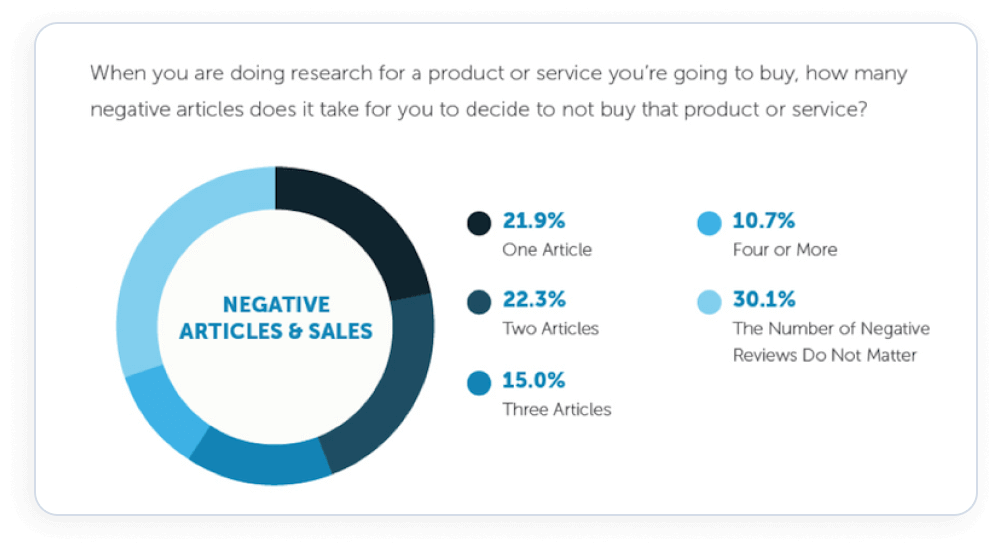
In reality, Google has indexed those negative articles or feedback related to your brand name, making it impossible to permanently erase them from search engine results pages (SERPs). However, the silver lining is that you can mitigate the impact by pushing them off the first page. Given that 75% of individuals never venture beyond the initial ten results on Google, strategically lowering the ranking of negative content can significantly reduce the risk of revenue loss for your company.
What's the Role of Reputation Management Firms?
Maintaining a positive online reputation can be a daunting challenge due to the multitude of platforms where reputations can be tarnished. For larger brands, the workload for online reputation managers increases substantially. Occasional press releases or content marketing efforts are insufficient to counteract the potential negativity across various digital platforms.

Consequently, there are occasions when the task needs to be delegated to an online reputation management company. Opting for a firm proficient in both reputation management and SEO services proves advantageous, as they possess the expertise to execute diverse strategies shaping Google search results. Depending on your crisis or business type, you can likely locate a reputable firm specializing in the precise reputation management service suited to your requirements. At LinkGraph, our specialty lies in leveraging advanced SEO techniques to uphold brand reputation across multiple digital platforms. Here's a concise overview of the services offered by online reputation managers (or reputation management software) to businesses today.
Establishing Reputations
Online reputation management firms assist new business owners in constructing and expanding their online presence. By incorporating digital marketing strategies such as link building, local SEO citations, and content marketing, they strive to enhance brand awareness and increase visibility for your brand or website. These growth strategies may encompass:
Optimizing for Search Engines
Content Marketing
Creating Social Media Profiles
Outreach to Bloggers
Leveraging Influencers
Managing Pay-Per-Click Advertising
Implementing Email Marketing
Managing Local Citations
Reputation Management
If your brand has been established for some time, you've probably relied on Google Alerts to monitor brand mentions and track online conversations about your business in real-time. However, as your brand expands, this task becomes increasingly intricate. It's probable that your in-house team members are primarily dedicated to managing the content on your company's website and lack the resources or time to monitor the online presence of other platforms referencing your business. Online reputation management services can assist in this regard and may encompass:
Social Media Marketing
Social Media Marketing
Monitoring Online Forums Online
Acquiring Reviews from Customers
Gathering Reviews
Utilizing SMS for Marketing
Guest Authorship and Blogging
Great content creation
Reputation Repair
When a brand faces a sudden influx of negative press from various sources, online reputation management firms spring into action swiftly. The proliferation of inaccurate, misleading, or unfavorable information across numerous online platforms can quickly spiral out of control. With countless syndications, online communities, and detractors on the web, negative content can spread rapidly. This onslaught can result in slander appearing prominently in Google search results, local listings, or social media profiles, precisely when potential buyers are seeking more information about the brand or company across different channels. Reputation management campaigns aim to mitigate the damage through:
Implementing Reverse SEO
Generating Reviews
Creating Social Media Content
Designing Websites or New Pages
Leveraging Social Media for Marketing
Creating Fresh Positive Online Content
Exploring Thought Leadership Opportunities
Reputation Crisis & Social Media Content
Areas Vulnerable to Online Reputation Damage
The vast expanse of the internet presents a challenge in comprehensively monitoring online presence, especially for large-scale enterprise brands with extensive social reach, popularity, or influence. The following digital platforms are particularly prone to inflicting significant reputation damage due to their high visibility, backlink profiles, engaged online communities, and substantial site traffic. They are also highly likely to dominate Google search results for your business name:

Negative Publicity on Established Publications
Understanding the Significance of Domain Authority in SEO It's widely acknowledged among SEO practitioners that domain authority reigns supreme in determining search engine rankings. Websites boasting numerous backlinks are more likely to secure top positions in search results. While negative publicity on a small news blog might sting, receiving unfavorable coverage in esteemed publications like the New York Times or the Wall Street Journal can be a nightmare scenario for any brand, potentially inflicting serious damage. These reputable publications not only possess high domain authority but also attract substantial traffic, boast large audiences, and feature staff authors with highly engaged Twitter followings. Moreover, they have the capacity to secure enduring SEO rankings. This is why public relations teams invest significant resources in promoting positive brand information through press releases, hoping for favorable coverage from these influential outlets. Given the extensive digital footprint of these publications, the type of content they feature can significantly impact a brand's image. Google's algorithms recognize user intent when searching for news-related content, displaying recent articles from the past 7-14 days accordingly. However, major publications rank for millions of organic keywords, allowing negative articles mentioning your brand to persistently appear in search results. For instance, searching "tesla product reviews" or "What's it like to work at Amazon?" yields results prominently featuring articles from reputable sources like the Washington Post and Medium, despite their original publication dates. In a sense, journalists inadvertently engage in negative SEO through their writing. Although they may not realize it, the articles they produce can linger in search results for an extended period, particularly when associated with renowned publications. While proactive PR campaigns can be launched, it's inevitable that major publications will cover organizational crises as news. While prevention may be challenging, mitigating the long-term repercussions is possible through strategic management.
Addressing Fake or Negative Reviews on Prominent Review Platforms
The Importance of Online Reviews for Local Businesses Online reviews play a pivotal role for local businesses, as Google incorporates them into its ranking algorithm. Consequently, businesses with unfavorable customer reviews may struggle to secure a spot on the coveted first page of search results. Given that even a handful of dissatisfied customers can significantly impact profitability, it's crucial for brands to diligently monitor review sites to ensure a predominantly positive feedback presence. Review platforms tend to lean towards negativity, with individuals more inclined to share their experiences following negative encounters. To counteract this trend, adopting a proactive approach to online review management is essential. This involves actively seeking positive reviews from satisfied customers, whom you're confident had a pleasant experience. Numerous software solutions are available to assist businesses in soliciting positive reviews through automated generation emails, text messages, or other contact forms. These tools help direct recent customers to the review platforms that carry the most weight, such as Google My Business, maximizing the positive impact on brand perception.
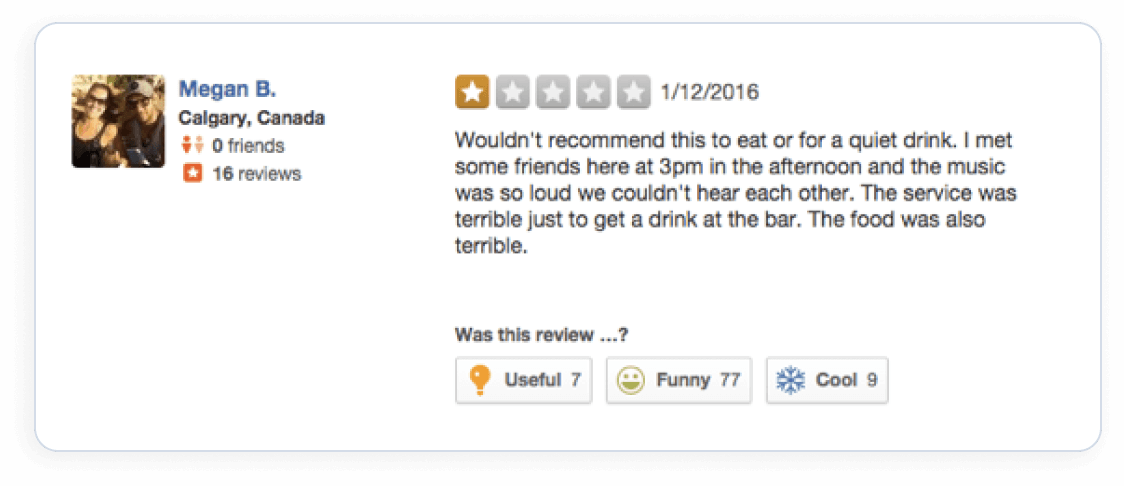
Despite maintaining a positive reputation on industry-specific review sites and directories within your niche, a single negative review from a dissatisfied customer can greatly influence prospective customers. Many online review platforms offer features like "Was this helpful?" or Yelp's popular "Useful," "Funny," and "Cool," options, which can determine the prominence of a negative review within the list.
A sudden surge in negative testimonials or 1-star reviews could indicate a potential negative SEO attack. Competitors might enlist individuals to post fake reviews to tarnish your business's reputation or attempt to outrank your site for particular keywords. Fortunately, many prominent review platforms offer features to flag reviews suspected to be fake. For further insights on identifying and recovering from such malicious SEO tactics, consider referring to my ebook titled "How to Identify and Recover from a Negative SEO Attack."
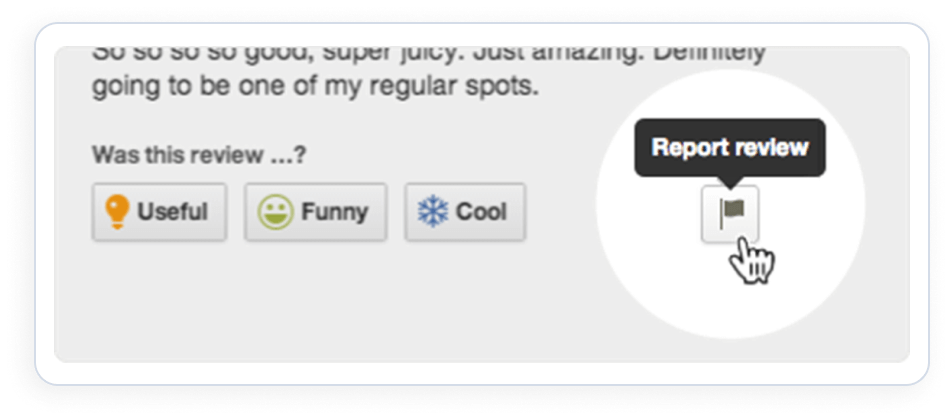
With numerous review sites available, customer complaints can surface on any platform. However, it's crucial to prioritize those sites that feature prominently on Google's first page. Strong reviews can be showcased effectively by incorporating schema.org markup on your website, enabling Google to display yellow stars and review counts in your rich snippets. Online reputation managers can proactively leverage positive reviews while mitigating the impact of negative feedback. However, if your small business consistently receives negative comments due to poor customer service or subpar products, it indicates a more significant issue. This feedback may signal areas within your business that require improvement. In some cases, negative reputations are warranted.
Addressing Inaccurate or Negative Information on Wikipedia
Inaccurate or negative information on Wikipedia can significantly impact a brand's online presence, given that Wikipedia pages often appear in approximately half of all searches. If your brand has a Wikipedia page, it's highly likely to feature prominently in search engine results pages (SERPs) for queries related to your brand name, potentially appearing on the first page. Additionally, if key stakeholders or notable executives associated with your brand also have Wikipedia pages, any false, exaggerated, or unflattering information can influence overall customer sentiment and affect purchasing decisions. While Wikipedia may not be the primary resource individuals consult when seeking new products or services, it remains a widely used internet reference site. When individuals seek comprehensive information or details about a subject's history online, Wikipedia often serves as the go-to source, despite its user-generated content and occasional inaccuracies.
Creating a Wikipedia page for your business is relatively straightforward, but approval is unlikely for small businesses or brands with limited influence. If your business reputation justifies a Wikipedia page, be prepared for a potentially time-consuming revision process. Wikipedia discourages businesses from submitting revisions to maintain impartiality and prevent promotional content. However, if inaccuracies or privacy violations are present, you can engage with the community of volunteers who approve or reject edits, presenting your case for necessary changes.
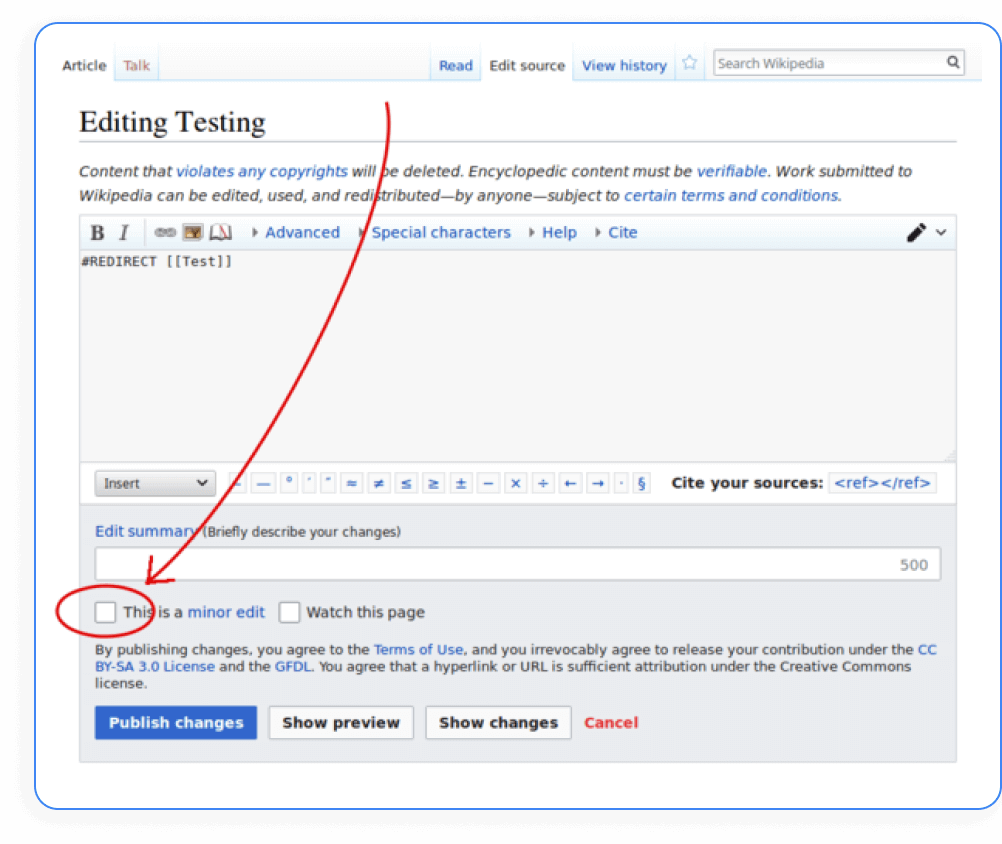
If you encounter false information on your former company's Wikipedia page, it's essential to use discretion in deciding when an edit is necessary. While it may be personally bothersome, it might not pose a significant risk to your company's reputation or online image in the long term. Certain online reputation management services specialize in creating and editing Wikipedia pages. Additionally, there are software tools available that provide alerts whenever changes are made to your Wikipedia page, allowing for continuous review of edits for inaccuracies or negative information. Strategically placing backlinks on Wikipedia pages can also offer SEO benefits, with some online marketers specializing in these types of services. However, if the negative information on the page is integral to your brand's history or had a widespread, enduring impact on the public, Wikipedia may be unlikely to approve edits. Negative situations and crises can become part of the historical record, and in such cases, it may be more effective to focus on elevating other digital locations in search engine results pages (SERPs) to outrank Wikipedia. Alternatively, creating reference or resource pages on your own site that can rank for branded searches may offer a more favorable solution.
Addressing Unwanted or Unflattering Images in Google Image Search
Images appear on the first page of Google for 27.3% of all searches. When users conduct a branded search and encounter unflattering, irrelevant, or inappropriate images as top results, it can create a negative first impression.
When key stakeholders associated with your company name face negative attention accompanied by visual documentation—ranging from current and former employees to customers and executive leadership—these images may surface in Google search results, jeopardizing your brand's credibility and overall reputation. The more prominent your personal or brand identity, the greater the likelihood of multiple relevant images associated with your name online. While not all searchers may rely on Google Image results when researching companies, it's essential to monitor the images and video content appearing in search rankings for mentions of your brand name or related searches. Additionally, images can infringe upon trademarks, violate privacy, or compromise personal security, prompting your company to seek legal counsel and pursue appropriate legal action.
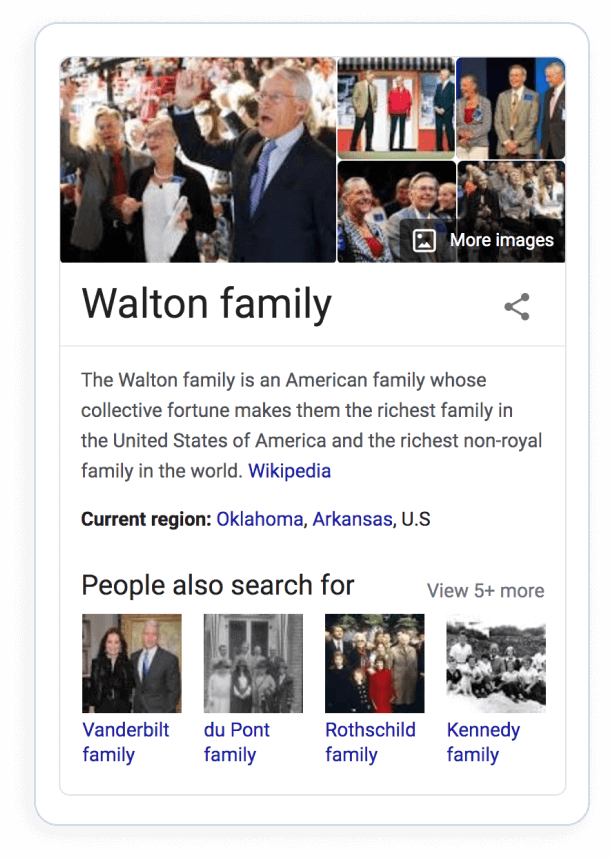
The initial step involves following Google's standard procedure for image removal, although there's no guarantee of success. Google's removal policies outline specific circumstances under which they will consider image removal requests, with a focus on personal privacy and copyright laws rather than corporate reputation or crisis management concerns. Alternatively, reputation managers can employ strategies like negative SEO to create low-quality links to images they wish to demote in search rankings. They can also publish new, relevant, and more positive images to target the same keyword and improve their ranking. Leveraging alt attributes and other optimization techniques can effectively boost the visibility of desired images in Google Images, contributing to a positive online image. Regularly monitoring image results, particularly for high-volume search terms related to your brand name, is advisable. Despite initially appearing insignificant, images can significantly impact potential customers' perceptions. Even a single negative result can have a profound effect on your online reputation.
Managing Negative Buzz or Trends on Social Media
While reputation attacks on social media platforms such as Twitter, Facebook, or LinkedIn can be challenging or damaging in the short term, they tend to be more temporary and typically do not impact search engine results pages (SERPs). Google places less emphasis on social signals for rankings, so negative social media posts or engagements on your Facebook page are unlikely to persist beyond the moment in time when they occur. Additionally, due to the strong recency signals in social media algorithms, negative buzz or trending negative attention often dissipates as quickly as it emerges.
A prime illustration of this phenomenon is the viral video depicting a United Airlines passenger being forcibly removed from his seat on an overbooked flight, which gained traction on Twitter. Subsequently, the video spread across various social media platforms, triggering a wave of negative news articles and garnering attention from multiple television media outlets. Ultimately, the incident culminated in a lawsuit filed by the disgruntled customer.

While it may appear that negative experiences documented across social media platforms would inflict lasting damage on a brand's image, the case of United Airlines illustrates otherwise. Despite such incidents, United Airlines continues to attract new customers, receive positive reviews, and maintain its lead generation efforts. Often, corporations overly prioritize mitigating negative PR stemming from social media hubbub, yet the actual impact of social media sites on these companies is somewhat exaggerated. For small businesses or B2B brands, the impact may be more substantial, but typically, once negative mentions have their moment in the social media spotlight, the company's overall reputation reverts to the perception held by the average person and their existing customer loyalty. If a company maintains a positive overall reputation, any damage to its corporate image is minimal and can usually be remedied with diligent social media monitoring and a transparent, carefully crafted public relations response across social channels. However, if the company consistently delivers poor service or offers subpar products, the negative social media feedback will persist as a long-term issue until they improve as a service provider. When a company faces criticism or backlash on social media, it may endure a period of scrutiny and ridicule, but this attention typically fades over time. However, negative content can linger in Google search results, affecting a company's reputation in the long term. Therefore, it's crucial to implement proactive reputation management and marketing strategies to prevent customers from encountering negative results during their journey. The mechanics of SEO reputation management are similar to traditional SEO practices. Applying SEO principles to various digital platforms—such as Wikipedia pages, social media profiles, or published articles—can enhance their performance in search results, essentially conducting positive PR across these channels.
The Process: Implementing SEO Reputation Management
The fundamentals of SEO are equally applicable to reputation management. The strategies used by SEO professionals to enhance our clients' web pages in search results can also be employed for other digital assets, such as Wikipedia pages, social media profiles, or published articles related to yourself or your company. Essentially, it involves conducting positive PR across these digital platforms to optimize their visibility and reputation.

Some reputation management tactics can be implemented on your own company website without relying on a third-party service. However, it's essential to possess a strong grasp of ranking factors and exercise judgment to determine which strategies are most suitable for your situation.
Effective SEO Strategies to Boost Digital Location Rankings
The core principles of search engine optimization can serve as valuable tools for reputation management. However, while SEO focuses on optimizing the onsite content of your own website, reputation management SEO aims to influence the rankings of various web pages across different sites. The most effective strategies will vary depending on factors such as your brand, target market, digital presence size, and the specific pages you intend to promote or demote in search results.
While you may not have control over the content of all online properties, you can optimize the content on web pages that your business can modify and enhance, such as profiles on third-party review sites or social media platforms. Utilize our landing page optimizer tool not only to optimize your own content but also to identify focus terms that can elevate off-site content's ranking for the same target keyword where negative content ranks. Incorporate content containing these focus terms to elevate positive digital locations in organic search results.
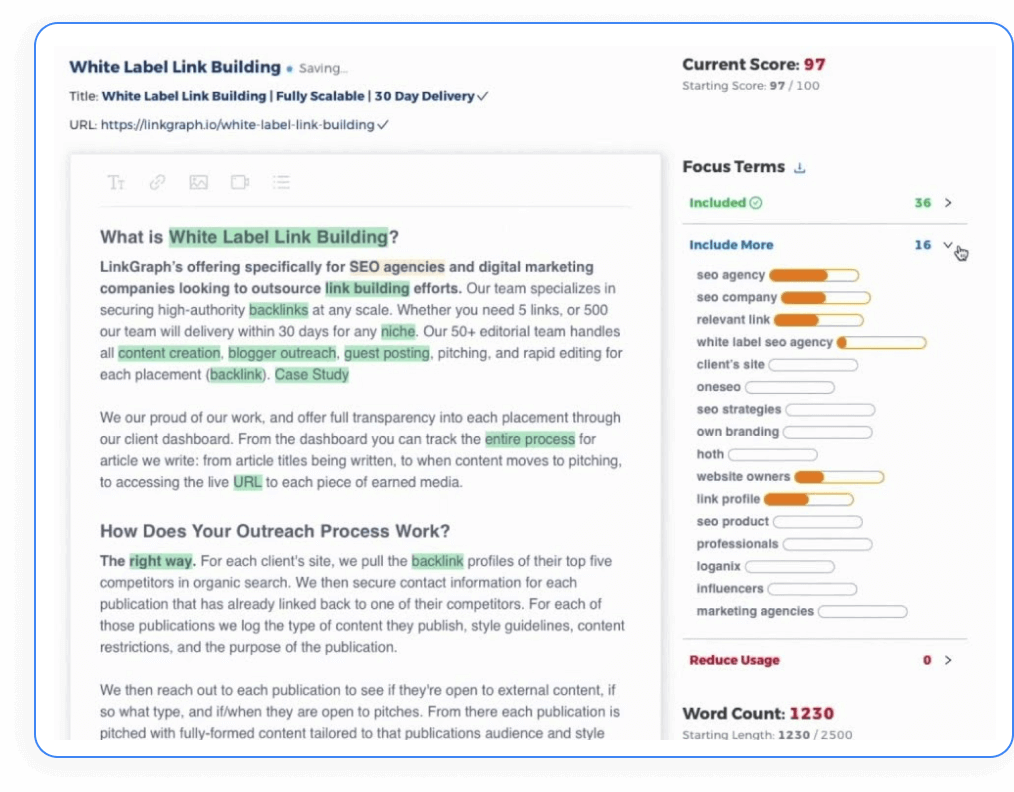
Shaping Public Perception: An Ethical Perspective
Navigating Ethical Considerations in Reputation Monitoring When delving into strategies to shape the content that appears in internet searches for a company's name, ethical questions naturally emerge. Some contend that a negative reputation is earned, and the public should have access to all relevant content to make informed decisions, even if it impacts corporate profits. Does the attempt to suppress negative posts or news articles imply that reputation management agencies are engaging in deception or coercion?

In a few instances, yes, but in most cases, reputation management efforts are not deceptive. Both professional and personal lives have been significantly impacted by negative online content, often featuring disproportionate levels of vitriol, anger, or criticism that outweigh the original wrongdoing. Moreover, some individuals exploit the internet for extortion, intentionally placing harmful information to unjustly harm innocent people. While all brands, individuals, and businesses are bound to encounter obstacles, not every misstep warrants a permanent, long-term negative online reputation, especially if the party involved is generally respected and has sought to make amends with those affected. While opinions may vary on this matter, most of us would desire the opportunity to move forward and improve if faced with a tarnished reputation ourselves. The influence of internet content on shaping perceptions of businesses, brands, and individuals is profound. It presents a challenge we are still navigating as a society and as digital marketers, underscoring the importance of maintaining an ethical perspective when engaging in reputation management. Each situation requires careful consideration of its unique circumstances to determine how to utilize SEO strategies ethically. The existing "Right to be Forgotten" laws dictate that negative items related to public interest and welfare should not be subject to removal. This serves as a valuable benchmark for reputation managers as they assess which narratives to address or suppress in search rankings.
Closing Reflections on Reputation Management
Whether you're a small business owner, an SaaS founder, or an enterprise-level executive, the significance of online reputation cannot be overstated. While your social media presence, content marketing strategy, and public relations endeavors contribute to shaping your brand image, navigating crises requires the expertise of SEO professionals to safeguard both your brand and domain name.

If you're unsure about the state of your online reputation, a valuable starting point is LinkGraph's complimentary reputation analysis. Utilizing our proprietary software, we provide insights into the keywords and digital platforms where your reputation may require attention or repair. As a digital marketing agency, we possess extensive expertise in monitoring your entire digital footprint, spanning social media platforms, online review sites, and the first page of search engine results (SERPs). Our SEO reputation management services are designed to ensure that your brand is presented in the most favorable light across the web. It's crucial to recognize that search results serve as pivotal reputation signals for your brand. These results are presented to users actively seeking information that influences their decisions regarding purchases or services. Ensuring a positive experience for potential customers throughout the customer journey, particularly at the outset, is paramount. In today's digital landscape, this journey often commences on search engines like Bing or Google.
